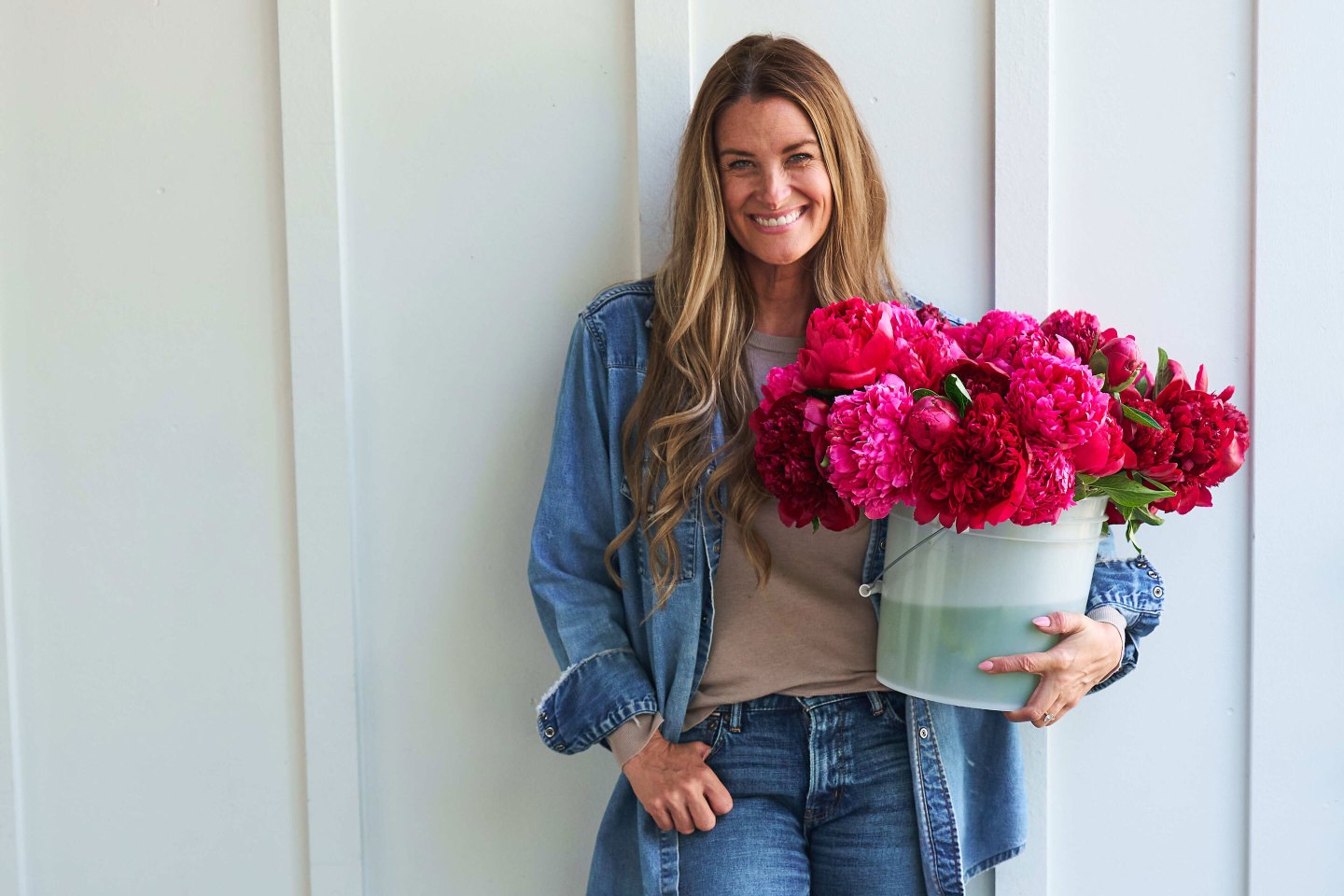Christina Stembel’s Farmgirl Flowers seemed like a huge success. The ecommerce flower delivery business was a media darling of the 2010s—and though Stembel never was able to raise any outside capital, its home base in San Francisco made it seem like part of the startup ecosystem. “To the outside world, we were super successful,” she remembers.
In 2019, the company did $34 million in revenue—but only $36,000 in profit. And Stembel only paid herself $60,000 that year. The next year, what seemed at first like an existential crisis quickly became a boom; during the pandemic, people sent flowers to each other and were eager to brighten up their homes. The company reached $60 million in sales in 2020 with 200 U.S. employees and 100 more in South America. But as soon as the world reopened, sales cratered. In 2021, the business suffered a $5-and-a-half million loss—and Stembel took out a $3-and-a-half million personal loan to keep it afloat.
Today, Stembel has overhauled her business model four times, and she’s running a much smaller company. She has 30 employees; bouquets are now assembled externally, rather than fully in-house, as differentiated Farmgirl from competitors for years but kept its costs high. (They’re still designed in-house.) And Stembel has redefined her definition of success.
Farmgirl is back at about $35 million in sales, with 15% net profit expected for the year—and Stembel is no longer building toward an exit. “I realized it was just my ego. It’s not anything else,” she says of originally aiming for a splashy outcome. She didn’t graduate college, and caught the entrepreneurship bug while working in the administrative department at Stanford’s law school. Unable to raise funding, she started the business with $49,000 of her own savings. But aiming for that high-profile exit is “not really vision,” she says. “What we’re doing now takes so much more vision than to take money from someone and pile it into ads.”
She believes that as a woman, she received fewer opportunities to reach that so-called pinnacle. She once got an offer to acquire the business that her banker called the “worst offer he’d ever seen.” “I finally realized that’s just not going to be my story, and it’s not going to be a possibility for me,” she says. Yet if she had raised money from investors, Stembel says she wouldn’t still be in business today. She wouldn’t have had the ability to pivot so many times, to come back from near-death with other people’s money on the line.
Stembel owns 99.86% of the business. She has stepchildren—but she doesn’t plan to turn Farmgirl Flowers into a family business and leave it to the next generation. She doesn’t believe in inherited wealth. Instead, she hopes to reach a point of stability in the next decade where she can step back, begin more profit-sharing with employees, and have the business run without her.
“Women don’t have the same choices men have,” she explains. “So the choice I can make is to make an exit not important any longer.”
Emma Hinchliffe
emma.hinchliffe@fortune.com
The Most Powerful Women Daily newsletter is Fortune’s daily briefing for and about the women leading the business world. Subscribe here.
ALSO IN THE HEADLINES
First, Sephora sponsored women's basketball. Now it's getting into men's. The beauty retailer entered sports with the Golden State Valkyries, who have found an innovative strategy for sponsorship in the WNBA. Now the relationship has extended to the Golden State Warriors, focused on men's fragrance, and the Chase Center. WWD
Melinda, Jenn, and Phoebe. Melinda French Gates did what is billed as her first joint interview with both of her daughters—Phoebe Gates, the media-friendly cofounder of Phia, and Jennifer Gates Nassar, a pediatric resident in New York. They talk about growing up and how Melinda parented—with a focus on raising her kids as normally as possible. Vogue
The bill to release the DOJ's Epstein files is headed to Trump's desk. Although President Trump initially tried to stop the release of files related to Jeffrey Epstein, some Republican rebelled in a rare move. Rep. Marjorie Taylor-Greene was one of the House Republicans to push for the files' release. CNN
Clara Shih is leaving Meta. She joined from Salesforce to lead its Business AI unit in November. But after the death of her father, she said she decided to step back from the role. Naomi Gleit, the longest-tenured Meta employee besides Mark Zuckerberg himself, is taking over Shih's role. Bloomberg
ON MY RADAR
Inside Revlon's reset under CEO Michelle Peluso Vogue Business
Med spa nation Allure
Larry Summers resigns from OpenAI board after Epstein revelations WSJ
PARTING WORDS
"It’s more powerful to say no to a lot of stuff than to say yes."
— Actress Rose Byrne says she wishes she'd said no more earlier in her career













